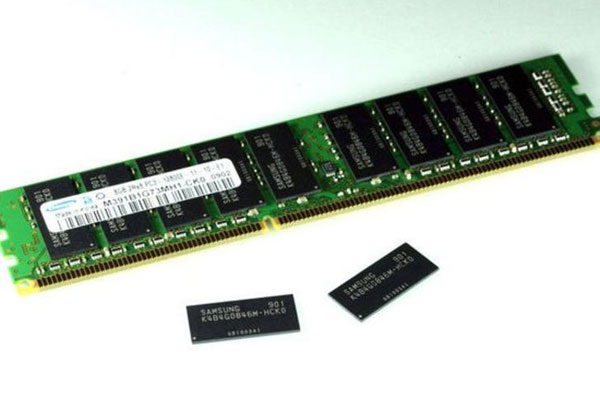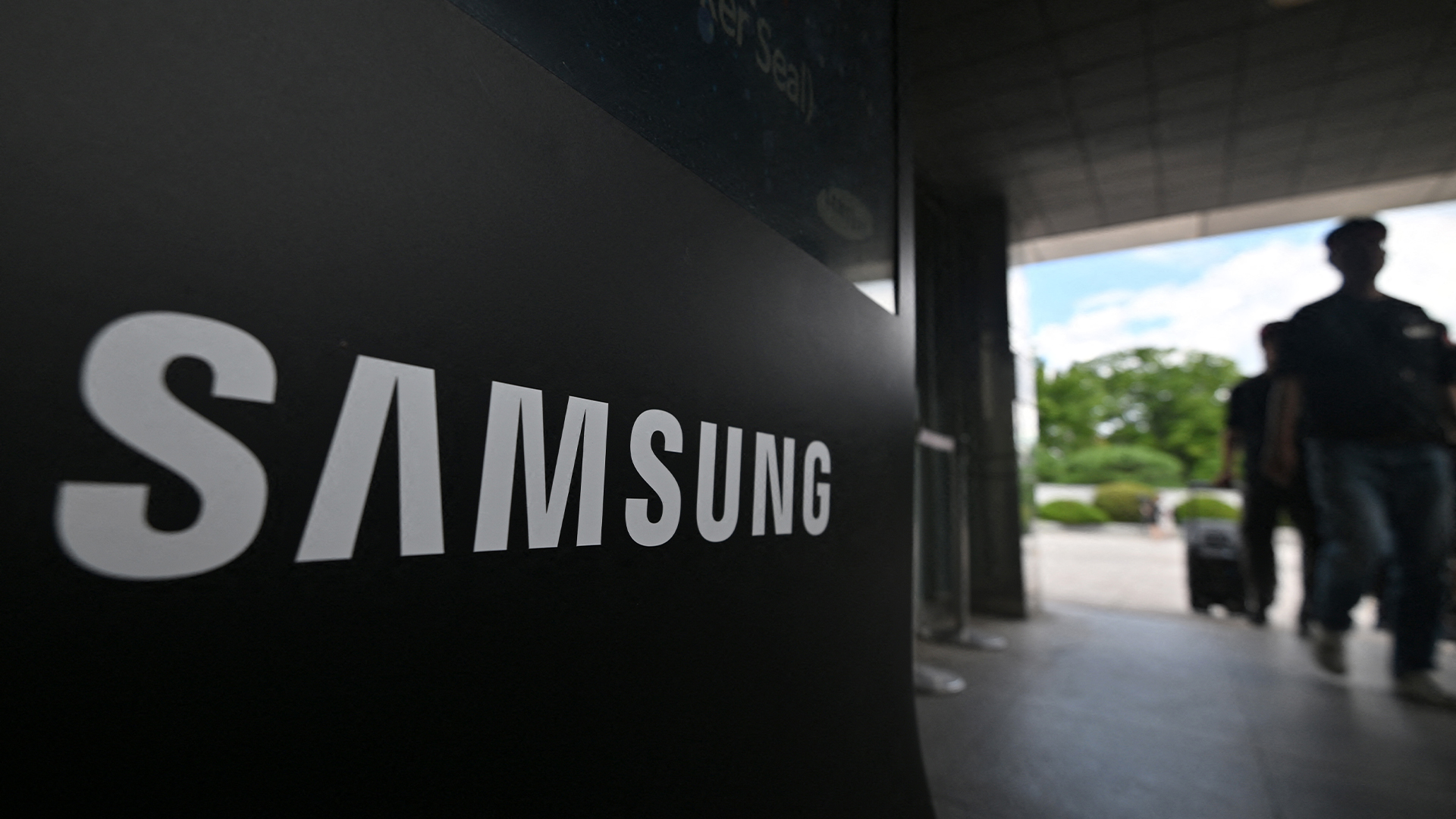Samsung 4Gb modules deliver server power savings
High density low-power memory modules will double memory for servers while reducing power draw.


Samsung has announced the development of 4Gb (gigabit) memory modules, double the size of its previous chips announced just five months ago.
The modules are aimed primarily at green' servers and are designed to reduce electricity bills and overall maintenance costs. This is due to the reduced need for heat removal by increasing the memory footprint in a given amount of space.
The increase in capacity is down to the use of a 50 nanometre manufacturing process, which also allows reduced memory draw. The 4Gb modules operate at only 1.35 volts, compared to 1.5 volts for the 2Gb modules, making it 20 per cent more efficient. Top speed for the DDR3 memory modules is 1,600MHz.
The 4Gb modules can be packaged as 16GB registered dual in-line memory modules (RDIMM) for servers and in this configuration Samsung said the new modules consume 40 per cent less power than the previous generation.
Samsung also said that the 16GB modules could be effectively glued together to create monster 32GB modules for servers. We can also expect to see 8GB DIMM for use in PC workstations, desktops and laptops.
"We have leveraged our strength in innovation to develop the first 4Gb DDR3, in leading the industry to higher DRAM densities," said Kevin Lee, vice president of technical marketing for Samsung. "By designing our 4Gb DDR3 using state-of-the-art 50-nm class technology, we are setting the stage for what ultimately will result in significant cost-savings, for servers and for the overall computing market," he added.
Intel's Core i7 architecture makes use of DDR3 and AMD is rumoured to be releasing a DDR3 update of its Phenom II desktop chips in the near future.
Sign up today and you will receive a free copy of our Future Focus 2025 report - the leading guidance on AI, cybersecurity and other IT challenges as per 700+ senior executives
The worldwide DDR3 DRAM market will account for 29 per cent of the total DRAM market in 2009 and 75 per cent in 2011, according to analyst IDC.
Benny Har-Even is a twenty-year stalwart of technology journalism who is passionate about all areas of the industry, but telecoms and mobile and home entertainment are among his chief interests. He has written for many of the leading tech publications in the UK, such as PC Pro and Wired, and previously held the position of technology editor at ITPro before regularly contributing as a freelancer.
Known affectionately as a ‘geek’ to his friends, his passion has seen him land opportunities to speak about technology on BBC television broadcasts, as well as a number of speaking engagements at industry events.
-
 Gender diversity improvements could be the key to tackling the UK's AI skills shortage
Gender diversity improvements could be the key to tackling the UK's AI skills shortageNews Encouraging more women to pursue tech careers could plug huge gaps in the AI workforce
-
 Researchers claim Salt Typhoon masterminds learned their trade at Cisco Network Academy
Researchers claim Salt Typhoon masterminds learned their trade at Cisco Network AcademyNews The Salt Typhoon hacker group has targeted telecoms operators and US National Guard networks in recent years
-
 Beyond the upgrade: How to maximize IT investments and minimize waste
Beyond the upgrade: How to maximize IT investments and minimize wasteHow to maintain optimal performance and productivity with your fleet of hardware and stave off the next upgrade cycle for a bit longer
-
 Samsung ramps up AI capabilities with Oxford Semantic Technologies acquisition
Samsung ramps up AI capabilities with Oxford Semantic Technologies acquisitionNews Oxford Semantic Technologies' knowledge graph tech will be incorporated into Samsung products across the board
-
 Energy efficiency and sustainability demands are transforming IT strategy
Energy efficiency and sustainability demands are transforming IT strategywhitepaper How Dell Technologies innovations are leading the way in energy effiency and sustainability
-
 Energy efficiency and sustainability demands are transforming IT strategy
Energy efficiency and sustainability demands are transforming IT strategywhitepaper How Dell Technologies innovations are leading the way in energy effiency and sustainability
-
 Your guide to smarter printing: 2024 edition
Your guide to smarter printing: 2024 editionWhitepaper Making smarter printing simple for all businesses
-
 Samsung UK recruits its first chief customer officer in bid to boost partner engagement
Samsung UK recruits its first chief customer officer in bid to boost partner engagementNews Deborah Honig will lead Samsung UK’s customer experience activity across its portfolio of business offerings in the region
-
 How to empower employees to accelerate emissions reduction
How to empower employees to accelerate emissions reductionin depth With ICT accounting for as much as 3% of global carbon emissions, the same as aviation, the industry needs to increase emissions reduction
-
 How much say does IT really have in sustainability initiatives?
How much say does IT really have in sustainability initiatives?ITPro Network Vendors are ready to proclaim their green credentials, but as members of the ITPro Network explain, making changes on the ground can be complex
